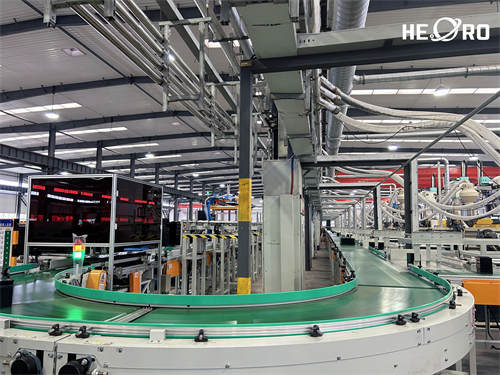Industry News
News Center
2025.10.20
2025: Deepening Implementation of Smart Manufacturing Systems—Practical Pathways from Technology Integration to Value Creation
Amid the global wave of digital transformation in manufacturing, smart manufacturing systems are transitioning from concept to large-scale implementation. Data from 2025 indicates that enterprises deploying these systems have achieved significant optimization in key metrics such as production efficiency and operational costs, establishing them as a critical pillar for enhancing competitiveness. As integrated solutions combining IoT, big data analytics, artificial intelligence, and other technologies, smart manufacturing systems are restructuring production processes, optimizing resource allocation, and driving the manufacturing sector toward automation, intelligence, and sustainability.
The significant value of smart manufacturing systems stems from the deep integration and synergistic application of diverse technologies. At the hardware level, automated equipment and industrial robots form the core of production execution. Through technologies like vision guidance and precise control, they achieve high operational efficiency in repetitive processes. Combined with IoT technologies such as RFID, they enable automatic material identification and full-process traceability.

At the data level, smart manufacturing systems establish a comprehensive data collection and analysis framework. Through sensor networks deployed along production lines, the system captures real-time data on equipment parameters, production progress, and quality inspections. Big data analytics then uncovers hidden patterns, providing precise support for decision-making.
Diverse application scenarios are unlocking the full potential of smart manufacturing systems. In quality control, integrated intelligent inspection systems achieve accurate and comprehensive defect detection. Green manufacturing and sustainability demands further drive the expansion of smart manufacturing systems into energy-saving domains. Dual drivers of policy support and technological innovation create a favorable environment for smart manufacturing system implementation. Since 2025, fiscal subsidies and tax incentives introduced across regions have further lowered barriers for enterprises to deploy these systems. Concurrently, the integration of emerging technologies like 5G and blockchain continuously expands the application boundaries of smart manufacturing systems, enhancing their adaptability in areas such as flexible production and personalized customization.
From technological integration to scenario implementation, and from single-process optimization to full-chain upgrades, intelligent manufacturing systems are profoundly reshaping the development model of the manufacturing industry. For manufacturing enterprises, selecting intelligent manufacturing system solutions tailored to their specific needs will become crucial for seizing industry opportunities and achieving high-quality development. Looking ahead, as technology continues to evolve, intelligent manufacturing systems will undoubtedly create greater value across more sectors, ushering the manufacturing industry into a new era of intelligent transformation.